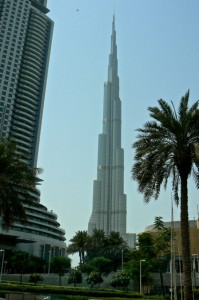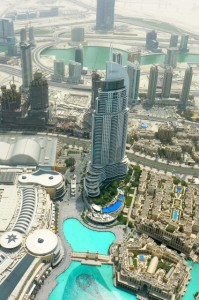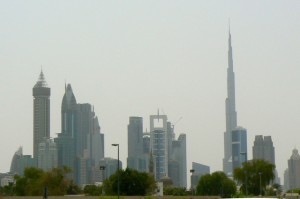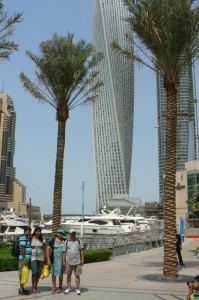Would you ever consider relocating to the Middle East for work purposes? And is the situation different for gay people who move there as opposed to nationals?
6 May 2015
By David Hudson
http://www.gaystarnews.com/article/whats-it-work-middle-east-gay-person060515/#gs.xU3gDWw
Countries in the Middle East are among the worst in the world when it comes to laws relating to LGBTI people.
If you’re gay, what might it be like to relocate to the region for work purposes? The Middle East is a large and diverse area. While being gay can result in capital punishment and imprisonment in Saudi Arabia, the situation if very different in Israel, where same-sex sexual activity is legal and gay people go about their lives without too much fear of persecution.
For the purposes of this feature, Gay Star Business spoke to individuals with experience of Gulf Cooperative Countries (GCC): Saudi Arabia, Kuwait, Bahrain, Qatar, Oman and UAE.
Same-sex activity is illegal and punishable across this region. Consequently, names here have been changed.
The GCC saw huge economic growth throughout the 00s, fuelled chiefly by the oil trade, but they took a hit when the world economy crashed in 2008. They’re now recovering, with a renewed focus on attracting domestic, regional and foreign private sector investment.
The journalist who found love in UAE
Emily has spent two spells working in Dubai’s burgeoning media industry. Originally from the UK, it was during her first spell in the city, in her late 20s, that she met her current partner – also working there from abroad.
The two now live together in the UK, but Emily returned to Dubai in United Arab Emirates, recently for another three-month contract. Later this year, the two plan to marry and are considering a full-time move to the US. ‘Because people tend to move out solo, and your working environment tends to be made up of expats in the same boat, so there’s not much of a line between work and your private life,’ says Emily when I ask her about meeting her partner and their initial attempts to keep their relationship private from work mates. ‘Your colleagues also end up being your flatmates and the people you spend your time with at weekends! So, in that sense, our relationship had little chance of being private. In general, nobody we worked with could have cared less. Our colleagues were Brits, Aussies and Americans and for that reason, it wasn’t an issue.
‘I admittedly was nervous about other colleagues from more conservative backgrounds finding out, and deliberately hid the relationship from a Palestinian colleague, because there is a sense that “you never know”.
‘By and large, you can live your life freely, but it takes just one person who gets offended to make a complaint and then you can find yourself in trouble. It is important to remember that homosexuality is a crime in the Middle East, and for that reason discretion is everything. Yes, there is a gay scene in Dubai – comprising both locals and expats – and even some underground gay clubs. But it is something to be kept behind closed doors, and being open about it would lead to trouble.’
What advice would she offer to anyone considering a move to the region?
‘I suppose I would ask whether you actually want to live in a place that criminalises your sexuality. When I moved out to Dubai, I had only been in straight relationships, so I didn’t move out there intending to be in a gay relationship. ‘Today, I am still in that gay relationship and neither of us would move back, because we don’t want to have to hide our relationship. I suppose it just depends on your reasons for moving out there. If it was a short-term plan to make some money and climb the career ladder, perhaps a couple of years of keeping things behind closed doors is a small price to pay. But I certainly wouldn’t recommend it as a long-term plan.’
Will your employer support you?
If you are thinking about relocation, besides researching the legal situation in specific countries, you also might want to check first on how your company might support you. David Stone is a London-based Partner with global law firm, Simmons & Simmons. It routinely sends its trainee solicitors on overseas secondments and has developed a series of guides – written by trainees for trainees – offering practical advice and information.
Besides these guides, what steps would it take to ensure the safety of LGBT staff in the UAE?
‘They are offered a specific briefing on local issues, they are given a mentor back here in head office, and an LGBT mentor, so that they have someone to talk to about these sort of things. There’s also an external counselling line that we have should they wish to discuss anything that they don’t want to talk to someone at the office about. And obviously, we have steps in place to deal with emergencies to bring people home should we need to.’
As far as he is aware, Stone says he knows of no Simmons & Simmons staff getting into trouble in the Middle East because of their sexuality. Would the company ever advise LGBT people to think very carefully against going somewhere like that?
‘We believe very much that it’s the option of the person concerned. Much of what you read about secondments is about how useful they are for people’s progression, so we would never discourage anyone from going.
‘We’ve had a number of LGBT trainees put their hands up for secondments overseas and they’ve completed them very successfully, including the Middle East, so, we wouldn’t advise against it. Dubai is the London of the Gulf in terms of gay men from surrounding countries emigrating here.’
Dale, in his early 30s and also from the UK, works in Dubai [pictured] in a corporate environment. He has been in the Middle East for the past two and a half years.
How different does he find it to working in the UK?
‘I keep that side of my life completely private from work colleagues. However, I did the same in the UK and am not comfortable discussing my sexuality with work people, apart from a few who become close friends outside of work. Accordingly, I don’t find it that different. I have worked in an English company here and an Arab company. There are gay men working in both although it would not be culturally acceptable to be open about it in the Arab company whereas in the English one I think most people just do not choose to be open about it for the same reasons as they chose not to in a UK corporate environment.

What advice would he offer anyone considering a move?
‘I can’t speak for all Middle Eastern countries but certainly in Dubai it is not what people expect. Dubai is the London of the Gulf in terms of gay men from surrounding countries emigrating here for the gay scene and liberality. You go on Grindr or Growlr and there are countless guys – I know this is true in other Middle Eastern countries too. People increasingly use a face profile pic too. This is something I have always done here and have never had problem. The only piece of advice really is to be very careful about doing anything in public or a public place. If you were caught giving a blowjob in a public bathroom by the police you will be put in jail before being deported, that’s for sure.
I have heard horror stories involving police. I think people have to be wary especially getting involved in relationships which end badly here – especially with locals, who hold a lot of sway – because a spiteful option would always be to report someone to the authorities for their sexuality. ‘I think this is extremely rare though, because whoever did it would be incriminating themselves.
Is it different if you’re an Arab national?
‘I think the cultural differences are huge in terms of the way the family is structured and the fact that most Arab families will not accept a ‘coming out’ so there is simply no coming out. People just operate without ever officially telling their family, who will not accept it even if they are told. Or they get married and have kids but are then hooking up on Grindr.
Arrested and deported for being gay
Dale’s views are backed up by Samer, who works for a European-owned lighting company. Samer was born and raised in Kuwait [pictured], and has lived in Istanbul, Lebanon, Dubai, Qatar, and is now back in Kuwait. He has been with his boyfriend since 2010. With regards to being out at work, he says: ‘It depends on the company. Some companies would fire your from your position because you’re gay, such as real estate firms, banks, schools, universities, retails shops, governmental sectors. Others will welcome you because of there will be benefits – such as fashion and make-up companies – the typical argument being “women like to deal with gay guys as they feel safer and he won’t have a crush on them.”’
As a Kuwaiti, Samer says he feels it ‘very risky’ to tell colleagues about his sexual orientation, but feels comfortable at his own place of work at it’s a Spanish company with headquarters in Barcelona.
‘My colleagues and company knows about me and they really respect me.’
However, he hasn’t always been so fortunate – and was previously deported from Qatar because of his sexuality. ‘I was working in Qatar in 2010 and I was dating through Manjam.com. I dated a Qatari guy. We had sex and also had threesomes with some of his friends. After ten days of seeing one another, he came to my apartment with the secret police. They punched me and arrested me. After five days in jail, they wanted to force me to sign a contract with them, to date people and then subsequently have them arrested, or face deportation from the country. Of course, I chose to be deported. They took many photos of me, did eye scans, fingerprints, etc, and then they asked my company to get my passport and an air ticket. I was deported after nine days in jail.’
‘I was working in Qatar in 2010 and I was dating through Manjam.com. I dated a Qatari guy. We had sex and also had threesomes with some of his friends. After ten days of seeing one another, he came to my apartment with the secret police. They punched me and arrested me. After five days in jail, they wanted to force me to sign a contract with them, to date people and then subsequently have them arrested, or face deportation from the country. Of course, I chose to be deported. They took many photos of me, did eye scans, fingerprints, etc, and then they asked my company to get my passport and an air ticket. I was deported after nine days in jail.’
He says he knows of other nationals that have experienced work problems.
‘A friend in Kuwait, who worked for a furniture and interior design company, was fired from his work when they found out that he was gay and dating a colleague. Another friend has his employment terminated at a bank because the management heard that he is gay.’
Asked how he thinks the situation may be different for nationals and non-nationals, he says, ‘If you are Kuwaiti, Qatari, Saudi or another GCC citizen, and they find out you’re gay, they may arrest you but they won’t mention that it’s for being gay – out of respect for your family and its reputation. They will arrest you for being a drug dealer, or some other excuse. If you’re a foreigner, they will just deport you – it’s as simple as that.’
For himself, the situation has forced him to consider radical action. ‘I have reached an agreement with a Greek friend whom I met in Istanbul. He has a lesbian friend and I have agreed to get married to her – they don’t have gay marriage in Athens. I am planning to move to Greece in August. My boyfriend will come to stay with me as visitor until we find a solution for him.’
Copyright © 2011-2015 Gay Star News.


















